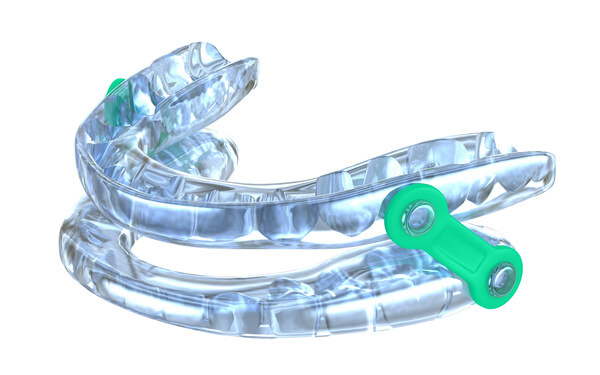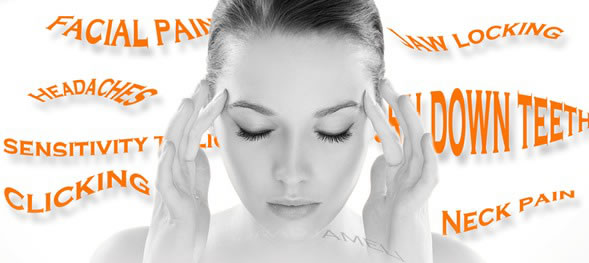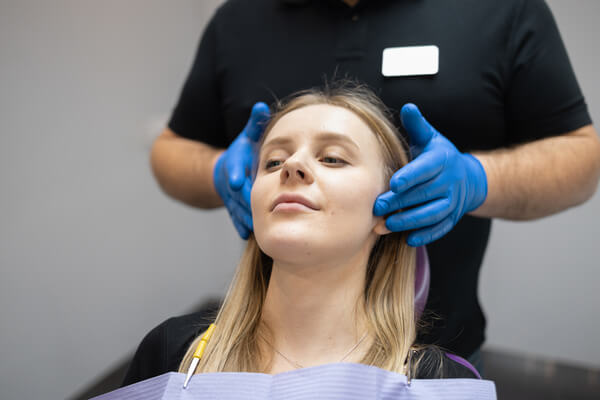Is It Snoring & Sleep Apnea?
Snoring
Snoring is the result of tissues in the throat relaxing enough that they partially block the airway and vibrate, creating a sound. Depending on an individual’s anatomy and other lifestyle factors such as alcohol consumption and body weight, the sound of the vibration can be louder or softer.
Sleep Apnea
Loud frequent snoring is one of the indicators of Obstructive Sleep Apnea or OSA, which is a chronic condition characterized by pauses in breathing or shallow breaths during sleep. When people with OSA fall asleep, they can stop breathing for a few seconds to a minute or more. Both conditions can be caused or made worse by obesity, large tongue and tonsils, aging and head and neck shape.

Book A Snoring Or Sleep Apnea Dental Consultation

Treatment With Snoring & Sleep Apnea Appliances
Oral appliances have a definite role in the management of sleep apnea and/or snoring. The appliance will not cure the apnea or snoring but works non-surgically to realign the jaw and tongue to keep the airway open. Custom-made mandibular advancing appliances are small acrylic devices that fit over your upper and lower teeth to advance the lower jaw forward and open up the airways. Sleep appliances are affordable, non-invasive, easy to use, and effective at improving breathing, reducing snoring/sleep apnea and quite well accepted by patients. Ask us if we can help you get a better night’s rest today!

TMD Therapy
What Is The Temporomandibular Joint (TMJ)?
What Causes TMD?
Other Possible Causes Include:
- Grinding or clenching the teeth, which puts a lot of pressure on the TMJ
- Dislocation of the soft cushion or disc between the ball and socket
- Presence of osteoarthritis or rheumatoid arthritis in the TMJ
- Stress, which can cause a person to tighten facial and jaw muscles or clench the teeth


TMD Symptoms May Include The Following:
- Pain in the jaw muscles
- Pain in the neck and shoulders
- Chronic headaches
- Jaw muscle stiffness
- Limited movement or locking of the jaw
- Ear pain, pressure, fullness, ringing in the ears (tinnitus)
- Painful clicking, popping or grating in the jaw joint when opening or closing the mouth

TMD Symptoms May Include The Following:
- Pain in the jaw muscles
- Pain in the neck and shoulders
- Chronic headaches
- Jaw muscle stiffness
- Limited movement or locking of the jaw
- Ear pain, pressure, fullness, ringing in the ears (tinnitus)
- Painful clicking, popping or grating in the jaw joint when opening or closing the mouth

How Is TMD Diagnosed?


